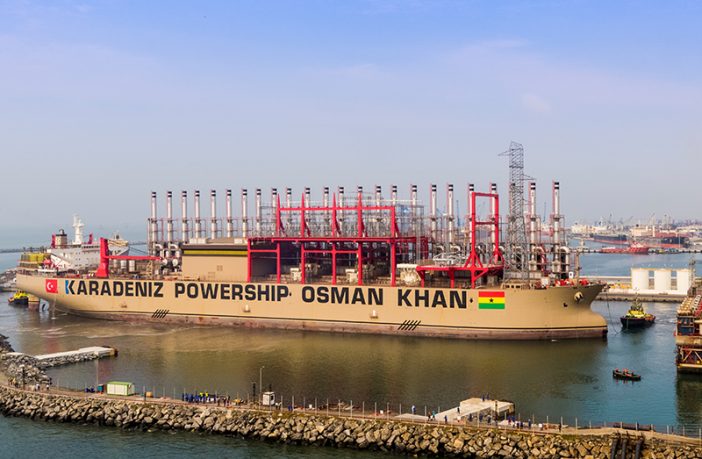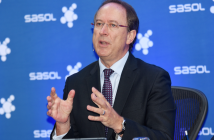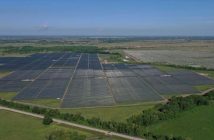- Karpowership SA (Pty) Ltd is a Turkish company that received preferred bidder status in the Department of Mineral and Energy’s (DMRE’s) Risk Mitigation Independent Power Producers Program (RMIPPP), as announced by Minister Gwede Mantashe on 18th March 2021.
- The company applied for three environmental authorisations for the ports of Richard’s Bay (KwaZulu Natal), Nqgura (Eastern Cape) and Saldanha Bay (Western Cape).
- The commenting period for the Environmental Impact Assessments closed on 31st March.
- After consideration of shortcomings in the EIA process, Department of Forestry, Fisheries and the Environment (DFFE)’s Chief Director of Integrated Environmental Authorisations, Mr Sabelo Malaza, issued letters for the refusal of all three Environmental Authorisations.
The decision followed warnings, comments and correspondence submitted by specialists, government authorities and civil society organisations. Several organisations including Richard’s Bay Clean Air Association (RBCAA), BirdLife South Africa, SANPARK, Oceans Not Oil (ONO), South Durban Community Environmental Alliance (SDCEA), Masifundise Development Trust, Green Connection, Centre for Environmental Rights (CER) and groundWork submitted comments to the EIA. Several irregularities and deficiencies were picked up by the organisations.
Lawyer Angela Andrews representing Green Connection noted that important specialist studies including noise impact studies and their impacts on marine life and its subsequent impact on small scale fishers was excluded. Green connection submitted a Complaint’s letter dated 30th May 2021 (attached) requesting for the suspension of the EIA process for Saldhana Bay. DFFE responded with a suspension letter dated 8th June 2021. Similar deficiencies were noted in the Richard’s Bay and Nqgura applications. Other issues included the inadequate public participation processes and significant new information and changes to the final EIA which were not made available to the public for comment before submission to the Department on 26th April 2021. On 17th June 2021 groundWork, represented by Attorney Michelle Koyama of CER submitted a letter noting that the similarities in deficiencies that were identified for Saldanha also applied to the other Karpowership EIAs. The letter submitted reasons for the department to investigate these further and requested for the suspension of EIA processes for Richard’s Bay and Nqgura as well.
The Department issued a Media Statement on 24th June that it “has reached a decision on the three applications which were submitted in October 2020 by Karpowership (Pty) Ltd” that “after due consideration of all relevant information presented” that it had adequate information at its disposal to make an informed decision and to refuse the applications for the environmental authorisations.
Karpowerships responded with claims of a “misinformation campaign to derail the Department of Mineral Resources and Energy’s (DMRE’s) strategic plan to end loadshedding and address South Africa’s economic and energy crisis”. However, this is Karpowership’s public relations spin to divert attention from its own internal midemeanours including including witholding information about explosion incidents and the mishandling of critical information during the environmental impact assessment processes conducted by their appointed environmental consultants Triplo4. The environmental assessment practitioner (EAP) Hantie Plomp downplayed serious potential impacts, added new information to the EIA after the Public Participation Process had closed and ignored several specialist, environmental and government authorities’ warnings to fully investigate these impacts, conduct critical site specific studies and to specify implementable actions to mitigate impacts.
Despite these shortcomings, Karpowerships did not appoint a new environmental consultancy or specialists to conduct these studies or extend the consultation process to allow time for the public to comment. Instead, they embarked on a massive public relations campaign in the past month to ‘consult’ with business groups and interested and affected parties within the affected areas. This happened after the EIA was submitted and public participation processes were finalised, so it did not fall within the regulatory requirements of the EIA process. Their post EIA consultations are therefore misleading the public and it is unclear why their funds were used for a public relations campaign rather than conducting a thorough environmental impact assessment.
The RMIPPP was supposed to fill a short-term gap in energy supply with Karpowership taking more than half of the allocated 2000MW allocation. Instead Karpowership will operate for 20 years, emitting collosal amount of GHG during its operation. With Karpowership environmental authorisation refused, it is unlikely to meet the financial closure for the RMIPPP deadline in July. An alternative plan for energy supply is needed and we hope that the DMRE is reviewing the RMIPPP which has been plagued with controversy, and relooking at additional renewable energy generated power in addressing both our energy requirements and the just transition to a socially inclusive low carbon economy.
Author: Centre for Environmental Rights











